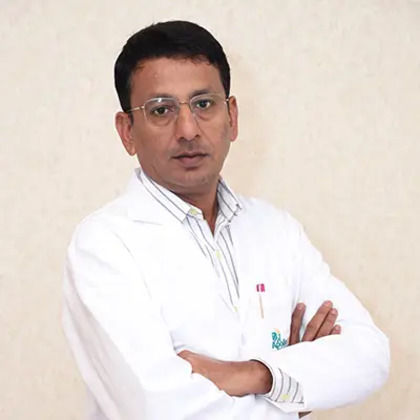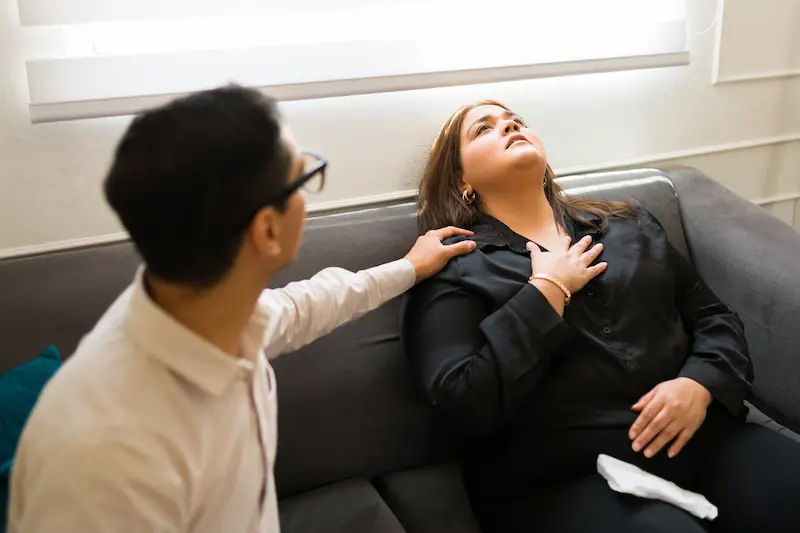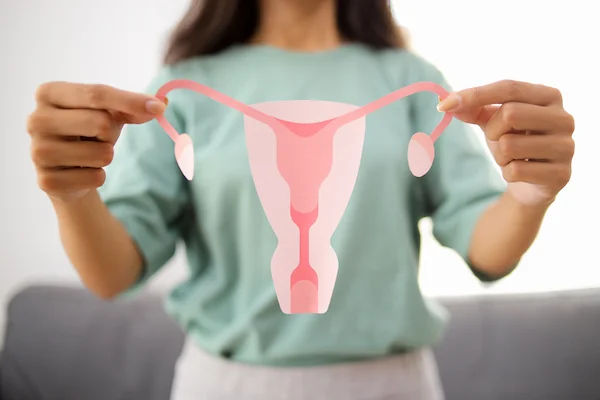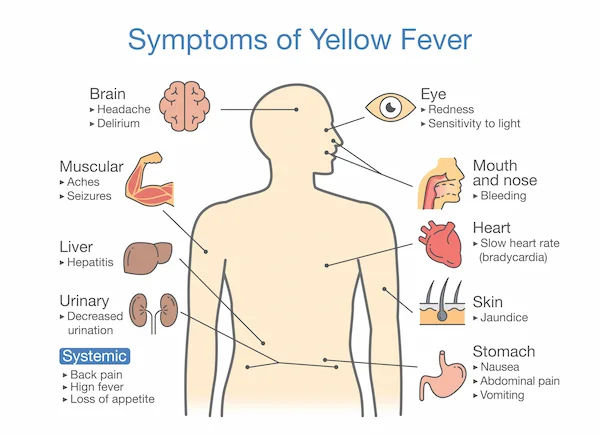Guide to Urologists Who Are They And What Can They Do
Learn what a urologist specializes in, the common conditions they diagnose and treat (affecting the urinary tract and male reproductive organs), and when you should schedule a consultation.

Written by Dr. Md Yusuf Shareef
Reviewed by Dr. Dhankecha Mayank Dineshbhai MBBS
Last updated on 13th Jan, 2026

Introduction
Urologists are the medical specialists who diagnose and treat problems of the urinary tract and male reproductive system—from urinary tract infections and kidney stones to prostate enlargement, incontinence, erectile dysfunction, and urologic cancers. Yet many people aren’t quite sure when to see urologists, what to expect during a visit, or how these specialists differ from nephrologists or gynecologists.
This guide breaks it all down in plain language. You’ll learn exactly what urologists do, the most common conditions they treat in men, women, and children, how they diagnose problems, and the treatments they offer—from medications and lifestyle strategies to minimally invasive procedures and robotic surgery. We’ll also cover practical tips for choosing the right specialist, preparing for your appointment, and getting the most from telehealth. Along the way, you’ll find myth-busting facts, prevention strategies you can actually use, and a look at what’s next in urology care. If you’ve ever wondered how urologists can help you or a loved one, this comprehensive guide is your starting point.
What Do Urologists Do?
The organs and systems urologists specialize in:
Urologists are surgeons and medical doctors trained to manage diseases of the kidneys, ureters, bladder, urethra, and, in men, the prostate, testes, epididymis, vas deferens, and penis. Because the urinary tract interacts closely with other systems, urologists often work with nephrologists (medical kidney specialists), gynecologists, oncologists, and pelvic floor therapists. Common reasons to see urologists include blood in the urine (hematuria), painful urination, frequent urination or urgency, urinary leakage, kidney or bladder stones, recurrent UTIs, enlarged prostate (BPH), erectile dysfunction, male infertility, and suspected urologic cancers.
Training, board certification, and subspecialties
After medical school, urologists typically complete 5–6 years of residency training in urologic surgery, followed by optional fellowships in areas such as female pelvic medicine and reconstructive surgery (FPMRS), endourology (stones and minimally invasive procedures), urologic oncology, pediatric urology, male infertility/andrology, neurourology, and transplant. Many are board-certified through national boards and maintain continuing education to keep up with advances like robotic surgery, thulium fiber lasers for stones, and advanced imaging such as PSMA PET for prostate cancer. When you’re searching for urologists, checking board certification, subspecialty training, and patient reviews helps match expertise to your needs. Consult a Top Urologist
Conditions Urologists Treat Across Ages
Men’s urologic health (prostate, ED, infertility)
Urologists manage prostate enlargement (BPH), which becomes more common with age—affecting about half of men in their 50s and up to 90% by their 80s—causing weak urine stream, hesitancy, and nighttime urination. They also treat erectile dysfunction (ED), Peyronie’s disease (curvature), low testosterone, and male infertility issues like varicoceles or obstructive azoospermia. Prostate cancer screening and counseling (PSA tests, digital rectal exam) are reviewed based on age and risk factors, with referral pathways if elevated PSA or abnormal findings occur. Urologists also diagnose hematuria and urinary infections in men, and are the point specialists for vasectomy and vasectomy reversal.
Women’s urologic health (UTIs, OAB, incontinence)
Women often see urologists for recurrent UTIs, overactive bladder (OAB), stress or urge incontinence, painful bladder (interstitial cystitis), urethral disorders, kidney stones, and hematuria. Female pelvic medicine–trained urologists collaborate with gynecologists on pelvic organ prolapse, fistulas, and reconstructive procedures. For recurrent UTIs, urologists assess risk factors, may order urine cultures and imaging, and can offer behavioral strategies (hydration, timed voiding), non-antibiotic prophylaxis, or targeted therapy. For OAB and incontinence, options range from bladder training and pelvic floor physical therapy to medications, Botox injections, tibial nerve stimulation, or sacral neuromodulation.
Pediatric urology (congenital issues, bedwetting)
Pediatric urologists care for children with congenital conditions like hypospadias, undescended testes (cryptorchidism), vesicoureteral reflux, hydronephrosis, and posterior urethral valves, as well as UTIs, dysfunctional voiding, and bedwetting (nocturnal enuresis). Early evaluation is key: for example, undescended testes ideally are corrected surgically (orchiopexy) before 12–18 months to optimize fertility and reduce cancer risk later in life. Pediatric urologists tailor testing to minimize radiation exposure and make visits child-friendly.
When to See Urologists: Symptoms and Red Flags
Urgent symptoms that need prompt care
Certain symptoms suggest you should see urologists promptly or seek urgent care:
• Visible blood in urine (with or without pain)
• Severe flank or groin pain suggesting a kidney stone (especially with fever or vomiting)
• Fever with urinary symptoms (possible pyelonephritis)
• Acute urinary retention (inability to urinate)
• Testicular pain/swelling (possible torsion—emergency)
• Unexplained weight loss or bone pain in men with urinary symptoms (possible advanced prostate issues)
If symptoms persist beyond two weeks, consult a doctor online with Apollo 24|7 for further evaluation, especially if you notice recurrent UTIs, worsening urinary frequency, or persistent pelvic pain. Early involvement of urologists can prevent complications and speed relief.
Chronic, quality-of-life issues worth addressing
• Don’t wait on problems that sap your quality of life. Urologists routinely help people with:
• Frequent urination, urgency, or nighttime trips
• Urinary leakage during exercise, laughing, or urgency
• Painful urination or chronic pelvic/bladder pain
• Recurrent UTIs (two or more in six months, or three in a year)
• Sexual concerns: ED, low libido, ejaculatory issues
• Infertility (difficulty conceiving after 12 months; 6 months if the female partner is over 35)
Urologists offer a spectrum of non-surgical and minimally invasive options that many patients find surprisingly straightforward.
How Urologists Diagnose: Tests and Procedures
Lab tests (urinalysis, culture, PSA)
Initial workups often include urinalysis and urine culture to evaluate for infection, blood, or crystals. In men, a prostate-specific antigen (PSA) blood test may be ordered to assess prostate health in context of age and risk factors. For recurrent stones, a 24-hour urine collection helps pinpoint metabolic causes and tailor prevention. Apollo 24|7 offers convenient home collection for tests like urinalysis, urine culture, and PSA, which can make follow-up with urologists smoother.
Imaging (ultrasound, CT, MRI)
Ultrasound is a radiation-free first step for kidneys, bladder, and scrotum. For suspected kidney stones, low-dose CT is highly sensitive; in some cases, ultrasound first is considered to reduce radiation, especially in younger patients. MRI helps characterize masses or evaluate complex pelvic floor issues. Imaging results guide urologists in choosing the least invasive effective treatment.
Office procedures (cystoscopy, urodynamics, biopsy)
• Cystoscopy: A thin camera examines the urethra and bladder—useful for hematuria, recurrent UTIs, or suspected bladder lesions.
• Urodynamics: Measures bladder pressures and flow to diagnose overactive bladder, obstruction, or neurogenic bladder.
• Prostate biopsy: Performed via transperineal or transrectal approach—often guided by MRI-targeted fusion for suspicious areas.
These tests help urologists pair precise diagnoses with personalized treatment plans.
Treatments Urologists Offer
Medications and behavioral therapies
Urologists often start with conservative measures: hydration and diet changes (e.g., reducing sodium and oxalate for stone formers), timed voiding, pelvic floor exercises, and bladder training. Medications may include alpha-blockers for BPH, PDE5 inhibitors for ED, antimuscarinics or beta-3 agonists for overactive bladder, and antibiotics for UTIs guided by culture. For interstitial cystitis/painful bladder syndrome, multimodal therapy may include dietary modifications, bladder instillations, and pain management.
Office-based and minimally invasive procedures
• Kidney stones: Ureteroscopy with laser lithotripsy, or shock-wave lithotripsy (SWL); thulium fiber lasers allow efficient dusting of stones with minimal trauma.
• Prostate: Office procedures like Rezūm (steam therapy) or UroLift to relieve obstruction without major surgery.
• Incontinence/OAB: Botox injections into the bladder, tibial nerve stimulation, and sacral neuromodulation.
• Urologists increasingly use same-day, outpatient techniques that shorten recovery and get patients back to normal activities faster.
Robotic, laparoscopic, and open surgeries
For complex cases, urologists offer:
• Robotic prostatectomy or partial nephrectomy for cancer
• Radical cystectomy with urinary diversion for bladder cancer
• Reconstructive surgeries for strictures or prolapse
• Microsurgical varicocelectomy for male infertility
Robotic platforms give urologists better visualization and precision, often leading to less blood loss and quicker recovery compared to traditional open surgery.
Real-world examples and outcomes
• Kidney stones: Lifetime risk is about 11% in men and 6% in women; metabolic testing and tailored prevention reduce recurrence significantly.
• BPH: Many men avoid surgery thanks to medications and minimally invasive options; for those who need it, targeted therapies can relieve symptoms while preserving sexual function.
• Prostate cancer: Active surveillance is appropriate for many low-risk cases, while MRI-guided biopsies and PSMA PET imaging help urologists stage disease and personalize treatment.
Seeing Urologists by Life Stage
Men’s health priorities by decade
• 20s–30s: Fertility concerns, testicular pain or lumps, STD screening, kidney stones; urologists evaluate semen parameters and structural issues if conception is delayed.
• 40s–50s: Early BPH symptoms, ED, rising stone risk; discuss individualized prostate cancer screening with urologists if appropriate.
• 60s+: BPH progression, incontinence, higher cancer risks; urologists guide shared decision-making around screening, diagnostics, and treatments that fit your goals.
Women’s urology across the lifespan
• Reproductive years: Recurrent UTIs, pelvic floor changes after childbirth; urologists integrate pelvic floor therapy early.
• Perimenopause and beyond: OAB, incontinence, UTIs; urologists may discuss local estrogen options, bladder training, or neuromodulation when medications aren’t tolerated.
• Any age: Kidney stones and hematuria; targeted imaging and dietary counseling are central to prevention.
Children and teens: when to involve a specialist
• Babies/toddlers: Undescended testes, hydronephrosis, reflux—urologists coordinate imaging and timely surgery when needed.
• School-age: UTIs and functional voiding issues; urologists reinforce bladder habits and treat constipation, a common contributor.
• Teens: Varicoceles, testicular pain, or hematuria; early evaluation helps prevent long-term consequences. If your child has recurrent urinary accidents or infections, a pediatric urologist can help design a kid-friendly plan.
Choosing and Preparing for Your Visit
How to choose the right urologist
• Match the problem to the pro: For example, see a stone-focused urologist (endourology) for recurrent kidney stones, or a FPMRS-trained urologist for prolapse or incontinence.
• Check credentials: Board certification, fellowship training, procedure volumes.
• Comfort counts: Look for urologists who explain options clearly and share decisions with you.
What to bring and questions to ask
• Bring a medication list, prior lab/imaging reports, a bladder diary (3–7 days noting fluid intake, voids, leakage), and a list of goals (e.g., “sleep through the night without 4 bathroom trips”). Ask urologists:
• What’s the likely diagnosis and what else could it be?
• Do I need tests now or can we try conservative steps first?
• What are my options (meds, procedures) and side effects?
• How will we measure success and when should I follow up?
Tele-urology and follow-up care
• Many follow-ups—reviewing test results, adjusting meds, tracking symptoms—work well via telehealth. If your condition does not improve after trying these methods, book a physical visit to a doctor with Apollo 24|7. Tele-urology helps you stay connected to urologists without travel, especially for chronic issues like OAB, stone prevention, or ED management.
Myths, Prevention, and the Future of Urology
Myths vs. facts about urologists
• Myth: Urologists only treat men. Fact: Urologists treat men, women, and children; many subspecialize in women’s pelvic health.
• Myth: Seeing urologists means surgery. Fact: Most urology care starts with lifestyle and medications; surgery is just one tool.
• Myth: Blood in urine after strenuous exercise is normal. Fact: It still warrants evaluation to rule out stones, infection, or tumors.
Prevention and self-care backed by evidence
• Stones: Hydration is key—aim for urine that’s pale yellow. Urologists often recommend a 24-hour urine test to personalize prevention (e.g., adjust sodium, protein, or oxalate).
• UTIs: Hydration, avoid bladder irritants, consider vaginal estrogen post-menopause (if appropriate), and targeted prophylaxis per culture results.
• BPH and OAB: Bladder training, pelvic floor exercises, and evening fluid management complement medications.
If you need urine testing, Apollo 24|7 offers home collection for urinalysis and culture to support prevention plans your urologist recommends.
What’s next: robotics, AI, and new imaging
• Urology is at the forefront of technology. Single-port robotic systems allow urologists to perform complex surgeries through small incisions. Thulium fiber lasers make stone surgery more efficient. Artificial intelligence is being studied to help predict stone recurrence and interpret imaging. For prostate cancer, PSMA PET imaging improves staging and helps urologists tailor therapy. These advances aim to reduce complications, speed recovery, and improve long-term outcomes.
Consult a Top Urologist
Conclusion
Whether you’re dealing with a bothersome urinary symptom or seeking guidance on screening and prevention, urologists bring a unique combination of medical and surgical expertise to your care. They diagnose and treat conditions that affect quality of life—like overactive bladder, BPH, and erectile dysfunction—as well as urgent issues such as stones and infections, and serious diseases like prostate, bladder, and kidney cancers. The best outcomes often start with timely evaluation, simple tests, and a stepwise approach that prioritizes the least invasive effective option.
If a symptom has been nagging you—frequent bathroom trips, leakage, painful urination, or blood in the urine—don’t wait. A visit with urologists can provide clarity, relief, and a plan tailored to your goals. If symptoms persist beyond two weeks, consult a doctor online with Apollo 24|7 for further evaluation or to arrange a referral. And if your care requires testing, Apollo 24|7 offers convenient home collections for common labs like urinalysis, urine culture, and PSA to streamline your follow-up.
The bottom line: urologists are here to help you regain comfort, confidence, and control. With today’s expanded options—from lifestyle strategies to minimally invasive procedures—you have more choices than ever to feel better and stay healthy.
Consult a Top Urologist
Dr. Mohamad Ali
Urologist
1 Years • MBBS, MS General Surgery, M Ch Urology
Pune
Apollo Hospitals Pune, Pune

Dr. Rohit Bhattar
Uro Oncologist
14 Years • MBBS, MS, MCh (Urology), Fellowship in Uro-oncology and Robotic Urology (United Kingdom)
Ahmedabad
Apollo Hospitals Gandhinagar, Ahmedabad
(100+ Patients)

Dr Shailendra Kumar Gupta
Urologist
10 Years • MBBS, MS (KGMU), DNB (Urology - MPUH, Nadiad)
Lucknow
Apollomedics Super Speciality Hospital, Lucknow

Dr. Qutubuddin Ali
Urologist
11 Years • MS, M.Ch.
Bhopal
Apollo Sage Hospitals, Bhopal
(25+ Patients)

Dr. Dhruv B. Patel
Urologist
12 Years • MBBS, MS, DrNB (Urology - IKDRC, Ahmedabad)
Ahmedabad
Apollo Hospitals Gandhinagar, Ahmedabad
(25+ Patients)
Consult a Top Urologist
Dr. Mohamad Ali
Urologist
1 Years • MBBS, MS General Surgery, M Ch Urology
Pune
Apollo Hospitals Pune, Pune

Dr. Rohit Bhattar
Uro Oncologist
14 Years • MBBS, MS, MCh (Urology), Fellowship in Uro-oncology and Robotic Urology (United Kingdom)
Ahmedabad
Apollo Hospitals Gandhinagar, Ahmedabad
(100+ Patients)

Dr Shailendra Kumar Gupta
Urologist
10 Years • MBBS, MS (KGMU), DNB (Urology - MPUH, Nadiad)
Lucknow
Apollomedics Super Speciality Hospital, Lucknow

Dr. Qutubuddin Ali
Urologist
11 Years • MS, M.Ch.
Bhopal
Apollo Sage Hospitals, Bhopal
(25+ Patients)

Dr. Dhruv B. Patel
Urologist
12 Years • MBBS, MS, DrNB (Urology - IKDRC, Ahmedabad)
Ahmedabad
Apollo Hospitals Gandhinagar, Ahmedabad
(25+ Patients)
More articles from General Medical Consultation
Frequently Asked Questions
1) What does a urologist do on the first visit?
Urologists review your symptoms and medical history, perform a focused exam, and may order basic tests like urinalysis, urine culture, or an ultrasound. Bring prior records and a bladder diary. If your condition does not improve after initial steps, book a physical visit to a doctor with Apollo 24|7.
2) Urologist vs nephrologist: who should I see for kidney problems?
Nephrologists manage medical kidney disease (e.g., high blood pressure–related kidney issues), while urologists address structural or surgical problems (stones, blockages, cancers). If you’re unsure, starting with urologists is reasonable for symptoms like flank pain, blood in urine, or difficulty urinating.
3) When should men see a urologist for prostate issues?
See urologists for urinary symptoms (weak stream, hesitancy, nighttime urination), abnormal PSA, or family history of prostate cancer. Discuss individualized prostate cancer screening with urologists based on age and risk factors.
4) Do women need urologists, or should they see a gynecologist?
Women often benefit from urologists for recurrent UTIs, overactive bladder, incontinence, interstitial cystitis, and stones. For pelvic organ prolapse or complex pelvic floor issues, urologists trained in female pelvic medicine often co-manage care with gynecologists.
5) Are cystoscopy and other urology procedures painful?
Most office procedures are brief and performed with local anesthesia. Urologists use small scopes and numbing gel; you may feel pressure but usually minimal pain. Discuss options for anxiety or discomfort with your clinician.




